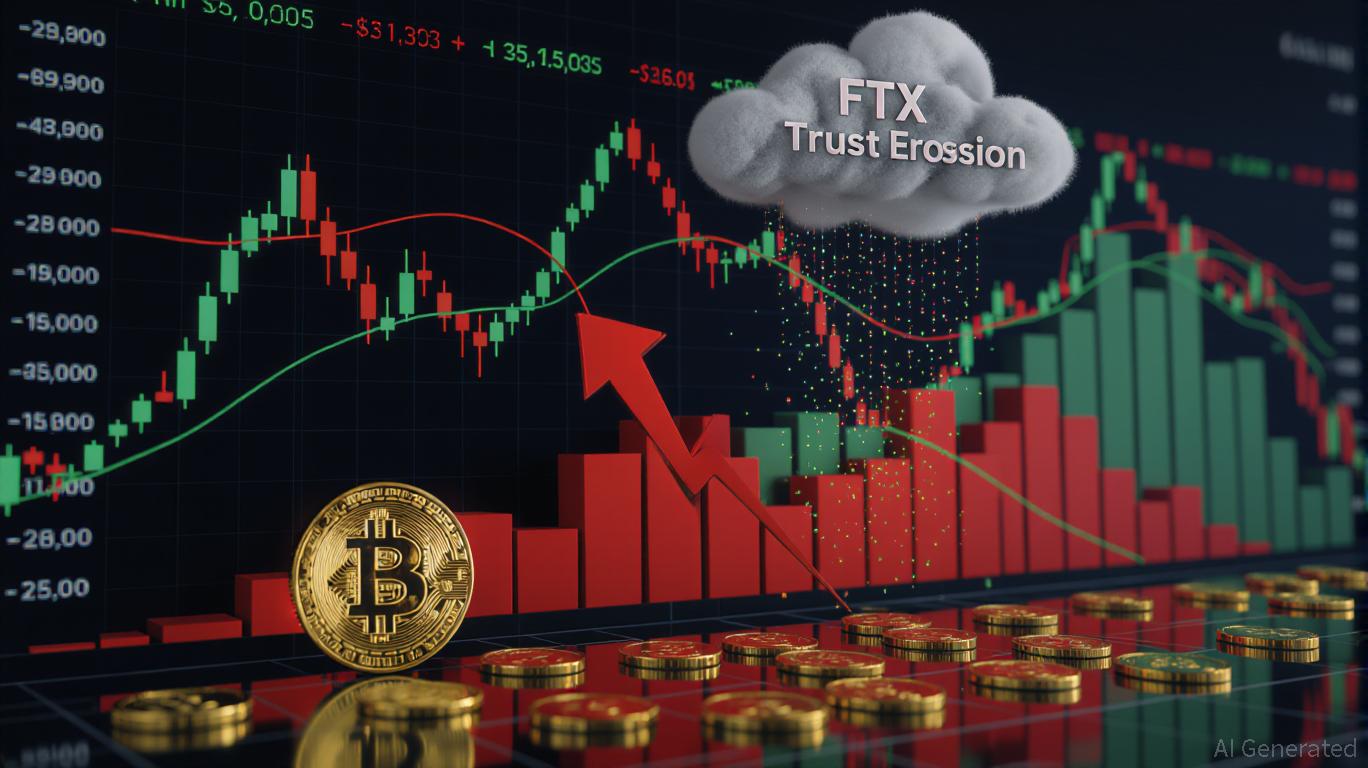Bitcoin News Today: Chinese Pensioners Defrauded in £4.6 Billion Cryptocurrency Pyramid Scheme, Mastermind Receives 11-Year Sentence in Historic UK Trial
- UK sentences Qian Zhimin to 11 years for £4.6B crypto Ponzi scheme defrauding 128,000 investors. - Case marks largest UK crypto seizure (61,000 BTC, $5-6B) in history, involving global cross-border investigation. - Victims, mostly Chinese retirees, lost life savings via patriotic-themed scams exploiting false political endorsements. - Sentencing highlights cross-border crypto crime challenges despite international cooperation between UK and Chinese authorities.
Qian Zhimin, a Chinese citizen, has been sentenced in the UK to 11 years and eight months in prison for masterminding a massive Ponzi scheme that deceived more than 128,000 investors in China and funneled the illicit gains into
Known as Yadi Zhang as well, Qian admitted guilt in September 2025 and was found guilty of money laundering and holding unlawfully acquired cryptocurrency. Judge Sally-Ann Hales at Southwark Crown Court described her as the "mastermind behind the operation from start to finish," stressing that her actions were motivated by "unbridled greed"

The Metropolitan Police’s Economic and Cybercrime Command led the investigation, uncovering Qian’s extravagant lifestyle after she fled China in 2017 and managed to avoid capture for years. She leased a mansion in Hampstead, London, for £17,000 a month and sought to buy luxury real estate, which drew regulatory attention. Police discovered devices containing 61,000 BTC during a 2020 search of her residence, and Qian was apprehended in April 2024 along with her associate, Senghok Ling from Malaysia. Ling received a four year and 11 month sentence for his role in laundering cryptocurrency
The magnitude of the scam and its international reach have attracted significant notice. Will Lyne, who leads the Met’s cybercrime division, described it as "the most valuable money laundering case in UK history"
Qian’s capture and sentencing have brought some hope to those defrauded, but the process of recovering assets remains complicated. The UK government is expected to manage any unclaimed assets, raising concerns about how victims will be compensated. Legal professionals point out that it will be difficult for individuals to prove their losses, especially for those who invested through local agents. Meanwhile, documents seized by authorities reveal Qian’s ambitions to create an international bank, purchase a Swedish castle, and even become the "queen" of Liberland, a self-proclaimed European micronation
This case highlights the increasing difficulties in tracing illegal cryptocurrency transactions. Officials commended the cooperation between UK and Chinese police, though Qian’s use of fake identities and international travel exposed weaknesses in global oversight. With Bitcoin’s price having soared since the fraud began, the confiscated assets now represent a substantial gain for regulators, while victims continue to deal with the consequences of a scam that exploited faith and technological enthusiasm
Disclaimer: The content of this article solely reflects the author's opinion and does not represent the platform in any capacity. This article is not intended to serve as a reference for making investment decisions.
You may also like
The Unexpected Bitcoin Plunge in November 2025: Causes Behind the Drop and Future Prospects for Cryptocurrency Investors
- The November 2025 BTC crash resulted from Fed tightening, lingering FTX trust erosion, and institutional outflows. - Fed's hawkish liquidity controls and inflation focus created toxic conditions for Bitcoin's low-rate-dependent market. - FTX's unresolved $7.1B payouts and $20B institutional exodus since 2022 amplified panic selling through trust deficits. - Crypto investors must now wait for Fed policy clarity and prioritize transparent platforms with regulatory compliance.

Bitcoin Updates Today: Fed Navigates Uncertainty as December Rate Cut Remains Unclear
- Market expectations for a Fed rate cut in December dropped to 52% from 95% a month ago, reflecting deepening policymaker divisions. - Hawks like Collins emphasize inflation risks, while doves argue easing is needed to avoid restrictive policies amid weak labor data. - A government shutdown delayed critical economic reports, complicating decisions as structural shifts demand nuanced policy responses. - Bitcoin gains were capped by reduced cut odds, while broader markets remain sensitive to Fed signals on

Solana News Update: Solana’s Fast Network Draws $1.5 Billion in Stablecoin Growth as USDC and USDT See Significant Increases
- Circle mints $500M USDC on Solana , leveraging its 4,000 TPS speed and $0.002 fees to boost DeFi liquidity. - Solana's 2.4M active addresses and 83M transactions highlight its appeal as Ethereum's high-throughput rival. - Tether simultaneously issues $1B USDT on Ethereum , contrasting with Solana's retail-friendly low-cost model. - Institutional adoption grows via Solana Staking ETF and major firm participation, challenging Ethereum's upgrades. - $1.5B stablecoin surge reflects demand for cross-chain sta

Fed's Policy Direction Shifts: Balancing Prudence and Swift Action in Crucial December Decision
- Fed faces 52% market odds of 25-basis-point rate cut at Dec 10 meeting, down sharply from 95% a month ago amid internal divisions. - Key officials like Collins and Kashkari oppose further easing without clearer labor market deterioration or inflation control below 3%. - Government shutdown delays critical data, forcing policymakers to rely on incomplete information and private-sector indicators. - Uncertainty risks asset markets: Bitcoin stagnates near $103k while real estate and growth stocks face headw
